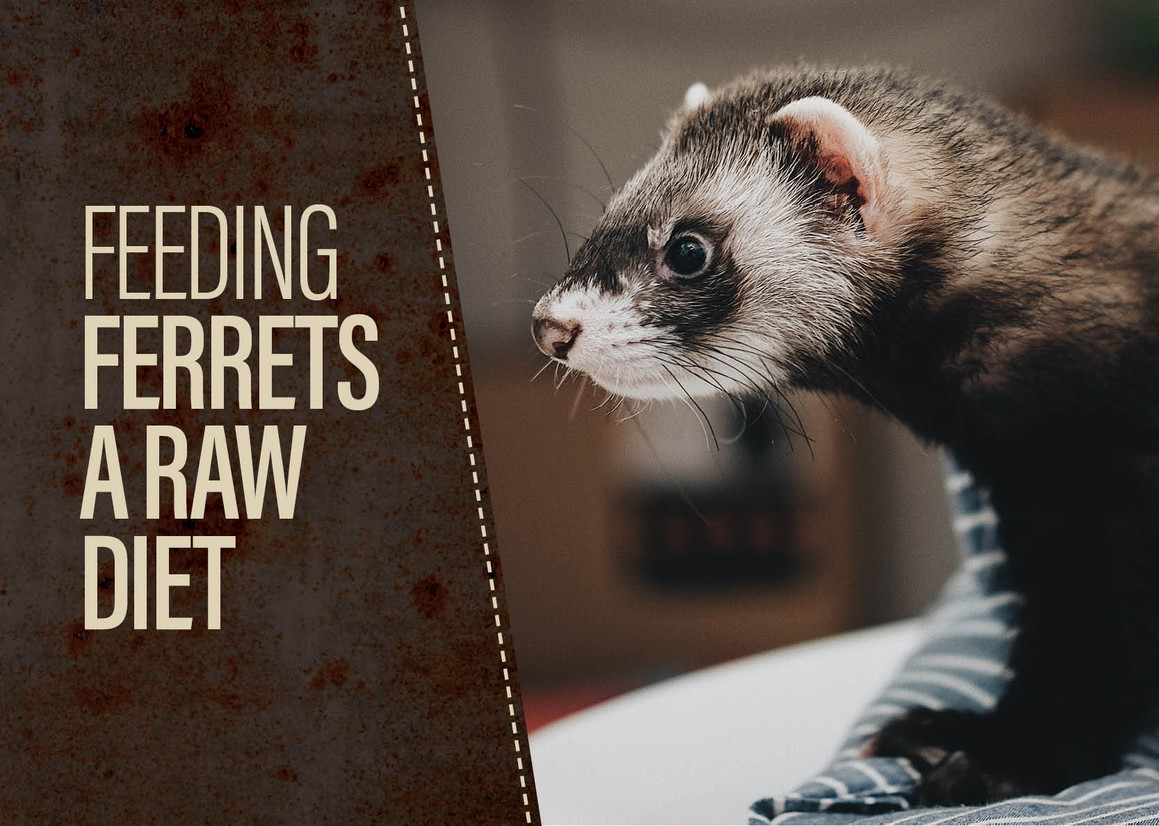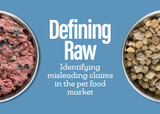What You Need to Know About Feeding Ferrets a Raw Diet
Feeding Ferrets
Ferrets are adorable little obligate carnivores, and they are becoming more and more popular as small animal companions! They are also the best candidates for raw feeding! Their dietary requirements are close to those of cats, with some specific differences. Just like cats, ferrets tend to become attached to their food, imprinting on their diet around 6 months old. Therefore, early exposure to a wide variety of foods increases the likelihood of acceptance later in life. For that reason, transitioning to a raw diet can be difficult for older ferrets, just as it is for older cats. A slow transition, mixing raw and their current food, might be the only solution. Ferrets simply need to learn that raw is food! Warming the food by adding a little bit of hot water can also be very helpful.
Just like felines, taurine is an essential amino acid for ferrets. This means taurine must be consumed in their diet. Big Country Raw Fare Game recipes contains the taurine that ferrets and cats need, making them the best choice. The 1/2 lb packaging and multiple protein recipes, make serving and protein rotation easy and convenient.
Ferrets are unique from many other pets in a few ways. Did you know that ferrets are crepuscular animals, meaning that they require at least 12 hours of darkness and 14-18 hours of sleep per day? This is to prevent melatonin deficiency! Ferrets also have a very high metabolism and need to eat 7% (adult or summer diet) to 10% (young or winter diet) of their body weight per day. - more than double what a cat of the same size would eat! Beware though, they are obligate carnivores with a sweet tooth! Feeding them too many carbohydrates will increase their chances of obesity and even diabetes. Ferrets fed carbohydrate-heavy diets need free access to their food to help manage blood glucose. Conversely, raw-fed ferrets usually manage very well with 2-3 meals per day.
It is a popular belief that fish should be avoided in a ferret’s diet, since fish are not naturally a part of their ancestral diet. Though this may be true, it is good to keep in mind that the diet of a wild ferret includes small prey that has a natural omega-3 and omega-6 balance. Today, domestic/farmed whole prey and meat are much higher in omega-6 and will need to be balanced by adding extra omega-3. Therefore, ferrets will benefit from a little bit of fish oil, or an occasional small fish as a part of their meal, though fish should not exceed 15% of their total diet. If your ferret isn’t a fan of fish, you can also try Ahiflower Oil.
Ferrets typically enjoy a whole prey raw diet that includes meat, organ, bones, feathers, skin, and fur! They will also love raw meaty bones, which are ideal for their dental health. Chicken Feet and Duck Feet provide a ton of enrichment through mental and physical exercise and are the perfect size for them.
Recent Posts
-
Defining RAW
If you’ve recently wandered the pet food aisles at your local pet specialty retailer, you’ve likely
-
Allergy or Intolerance? How to help stop the itch.
Allergies seem to be increasingly common in pets, especially in dogs. Food allergies, environmental
-
Evolution of the ‘Picky Pup’
Any dog owner today is familiar with the narrative of how our canine companions came to be domestica





